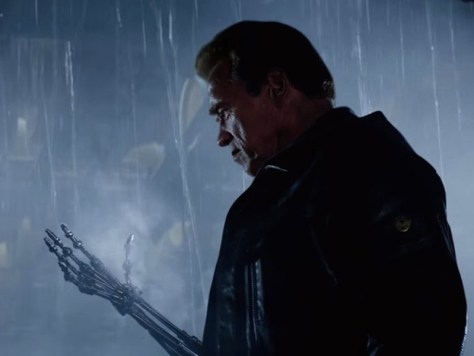
The plot leading up to the titular Walk is relatively paint-by-numbers biopic fare, with Petit (Joseph Gordon-Levitt) narrating his life’s story over flashbacks while standing atop the torch of the Statue of Liberty. We follow his humble beginnings in France as an apprentice for eccentric ringmaster Papa Rudy (Ben Kingsley) and as a street performer who wins the heart of a young musician named Annie (Charlotte Le Bon). When he happens upon a magazine ad for a gargantuan set of towers that are under construction in the United States, his entire being is immediately dedicated to the sole purpose of claiming his place between the two buildings.
Gordon-Levitt lends a welcome sense of dimension in his portrayal of Petit, fusing aspects of the man’s charm, dedication and whimsy to craft a fleshed out character instead of simply playing him as a crazed buffoon on a tightrope. He also doesn’t shy away from the more unlikeable points of Petit’s personality either, often imbuing his actions with an air of arrogance and selfishness that don’t always make him the easiest guy to root for. It’s true that we may never really know why Petit did what he did that day but Gordon-Levitt seems closest than anyone has previously come to capturing his true essence and finding the method in his madness.
Like his protagonist, Zemeckis is performing a balancing act of his own: finding a happy medium between the heart and humanity of his characters while also providing a first-rate visual experience. The pacing involved in pulling off a story like this also requires a fair amount of tact as well, as the audience is already aware of the film’s big climax and everything leading up to it could come across as nothing more than tedious build-up. Thankfully, the director has just enough tricks up his sleeve to keep us interested in the story and invested in the characters prior to the high-wire sequence.
This feels like an appropriate time in this review to candidly reveal that I am petrified of heights (as was one of Petit’s accomplices, incidentally) and I had reservations even seeing this movie on that basis. I convinced myself that the rampant use of green screens and CG effects would generate just enough incredulity to keep my fear at bay. I was woefully mistaken. No matter how many times I told myself that this daring escapade was just an illusion, it did nothing to deter the effectiveness of this film’s great event. The audacity and the wonder of Petit’s walk is captured flawlessly in The Walk, even if there are some narrative mis-steps leading up to it.









